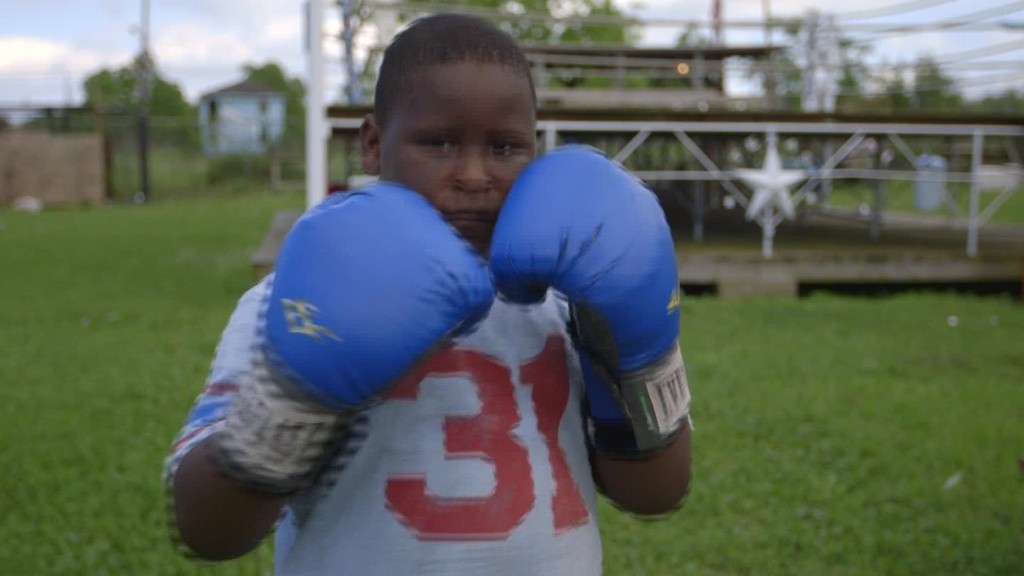
Katrina10.org, a web site created by the city of New Orleans to commemorate its revitalization 10 years after Hurricane Katrina, ticks off a number of successes: major rebuilding projects, criminal justice and education reforms and the rebirth of neighborhoods.
But for some black residents of New Orleans, the fruits of the recovery have been far more elusive.
"It's very easy to get caught up in the shiny new buildings, the renovated airport," said Erika McConduit-Diggs the president and chief executive of the Urban League of Greater New Orleans. "But when you really start peeling back the layers and digging deeper into who specifically has benefited from the recovery, you see a lot of inequities."
According to a report released this week by the Urban League, whites in New Orleans are benefiting the most from the economic recovery. Not only are they earning far more income, but they are also more likely to be employed and work in better paying jobs than black residents.
Take earnings, for example. Between 2005 and 2013, the median household income for blacks in New Orleans rose just over 7% to $25,100. Meanwhile, median incomes for whites climbed 23% to $60,553.
"The wealth gap is growing," said McConduit-Diggs. "We are trending in the wrong direction."
The disparities have a lot to do with a lack of access to good jobs. In 2013, the unemployment rate among blacks in New Orleans was 13% compared to 6% for whites. Blacks are also more likely to work in lower paid and less senior positions than whites, who hold 60% of managerial and professional level positions in the city. Meanwhile, blacks hold just 27% of these posts, the Urban League report said.
Related: A fennel buld grows in the 9th Ward
Availability of affordable housing is another big area for concern. After the storm, the city razed some of its largest public housing developments. It was a decision that was welcomed by some as an opportunity to dismantle the economic segregation that was created by clusters of low-income units. But it was hotly contested by others who feared a loss of affordable housing stock.
The city has since built new housing, but some of these newer developments have fewer units than the ones they were meant to replace.
"We haven't built back a one-to-one ratio of affordable housing units," said McConduit-Diggs. "That creates a significant challenge for people who want to return."
KatrinaTruth, a web site created by a consortium of racial justice groups, reports that there are now only some 2,000 public housing units available in the city today compared with 12,270 before the storm. It also notes that 99% of the 4,440 families that are on waiting lists for public housing are African-American.
Making things worse for lower income and black residents are rising rents and flood insurance costs. Before Katrina, "most people didn't have flood insurance," said McConduit-Diggs "Now that is absolutely a requirement."
All of these factors are having a big impact on New Orleans' youth. Nearly 50% of the city's black children are now living in poverty. On a national level, 38%, or roughly 2 out of every 5 black children live in poverty.
Related: 2 out 5 black children are living in poverty in the U.S.
"Blacks were already at such a disadvantage coming into Katrina," McConduit-Diggs said. "They didn't have the safety net that their white counterparts had. They didn't have the savings."
New Orleans officials did not respond to requests for comment. Instead, the mayor's office released a "resiliency strategy," which included an emergency savings plan program that would match a percentage of the funds set aside by low and moderate wage workers.
"We don't want a New Orleans in which people live a block away but are a mile apart in terms of economic opportunity," the city said in its press release.
While a recent Kaiser Family Foundation survey found that most New Orleans' residents feel the city's recovery efforts are on the right track, they believe it is uneven when it comes to race. Just over 40% said the recovery efforts had done a lot to help the wealthy and whites, while only 21% said the recovery had done a lot to help blacks and 17% said the same about the poor.
"In ten years, we are touting progress in New Orleans but what we do know is that progress has not been applied equally or equitably," said Thena Robinson Mock, a project director at the Advancement Project, one of the civil rights groups that helped create the KatrinaTruth site.
